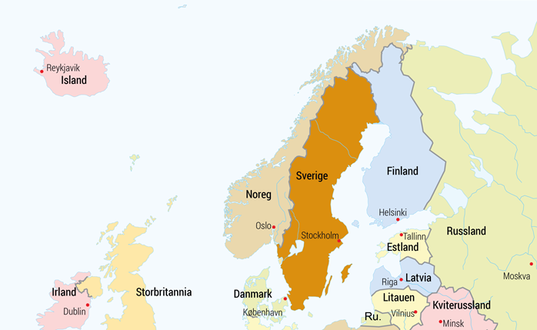International Cooperation
Placements and studies abroad
- The nursing programmes at RSU are included in the Nordic and European university network Nord-Baltic 5 that gives students the opportunity to complete an up to three month-long placement at hospitals in Denmark, Sweden, Norway and Finland, or to study individual subjects at universities in these countries,
- Students can apply for the Erasmus+ exchange programme for one or two semesters.
Nord-Baltic 6 short programme of digital courses for students
In April 2021, the Nord-Baltic 6 short training programme for students took place remotely.
After successfully completing the course, during discussions on social welfare in the Nordic countries, 10 students acquired the following topics:
- safe discharge from hospital, reflection of home care service in different Nordic countries;
- patient safety issues in different Nordic countries;
- law, regulations, policies and procedures of surgery care in nursing in different Nordic countries.
Members of the Nordplus network Siv Roel, Kirsi Tanskanene and Kristaps Circenis gave presentations. Students from partner universities like Malmö University (Sweden), University College Copenhagen (Denmark), University of South-Eastern Norway (USN), Rīga Stradiņš University (Latvia), University of Iceland (Iceland), and Karelia UAS (Finland) also prepared presentations.
The Nordplus Higher Education Programme
- Mobility and network programme in the higher education for the Nordic and Baltic countries
- Nord-Baltic 6 network includes six higher educational institutions
- Subject area of the network is nursing education
- Nord-Baltic 6 has a long history for about 25 years ago
- The goal is to enhance international collaboration between Nordic countries under Nordplus programme
Nord-Baltic 6 Partners
Malmö University (Sweden)
University College Copenhagen (Denmark)
University of South-Eastern Norway (USN)
Rīgas Stradiņš University (Latvia)
Karelia University of Applied Sciences (Finland)
University of Iceland
Health Promotion of Families – 5 ECTS, joint study module
(Concern during pregnancy and families with children up to 1 years of age)
With this study module, students studying dental hygiene, a midwifery degree and public health nurse programs have the opportunity to consider common methods of health promotion in a multidisciplinary team.
About the study module
Health promotion of families is a goal-oriented action to achieve the health and well-being of families. The results are the strengthening of internal and external health protective factors and a change in lifestyles in a healthier direction.
Family health promotion is a set of actions to foster good health and wellbeing. It moves beyond a focus on individual behaviour towards a wide range of social and environmental interventions. Child and family health services have the opportunity to conduct evidence-based health promotion activities that aim to encourage families to create attitudes, health behaviours and environments to promote optimal health for families and children.
The joint module is available in partner universities: Savonia University of Applied Sciences, Riga Stradiņš University, Lithuanian University of Health Sciences.
Research project “How to protect a normal birth” (within the Nordejordemodern Network)
Countries of the participating institutions: Norway, Iceland, Denmark, Lithuania, Sweden, Finland, Latvia.
It is planned that the participation of students in the Midwifery study program is through developing a Bachelor's thesis.
RSU representative: Ilze Ansule
About the project
This project develops the professional competence of midwifery students in the existing midwifery curriculum and educational skills. This project will focus on normal births, which is a topic under discussion in many midwifery settings within Europe and worldwide.
Interventions have become increasingly common in births, such as the use of medical pain relief, amniotomies and the use of oxytocin speed up the birth. The use the above interventions has become so common that in some contexts they have become a part of what is considered a normal birth.
This project will be naturally linked to the curriculum and in cooperation with teachers, the students will collect and analyse interview data from midwives. All students in the bachelor or master level write a thesis as a part of their curriculum (either a literature review or an empirical study) with support from a supervisor. Some of the students already know a topic of interest for them to investigate, but a large part of them need inspiration to help to find a topic.
The network's partners have already agreed on the topic of this project and find it important and topical for midwifery students, as the topic is frequently discussed both in the Nordic countries as well as in Europe and worldwide.





